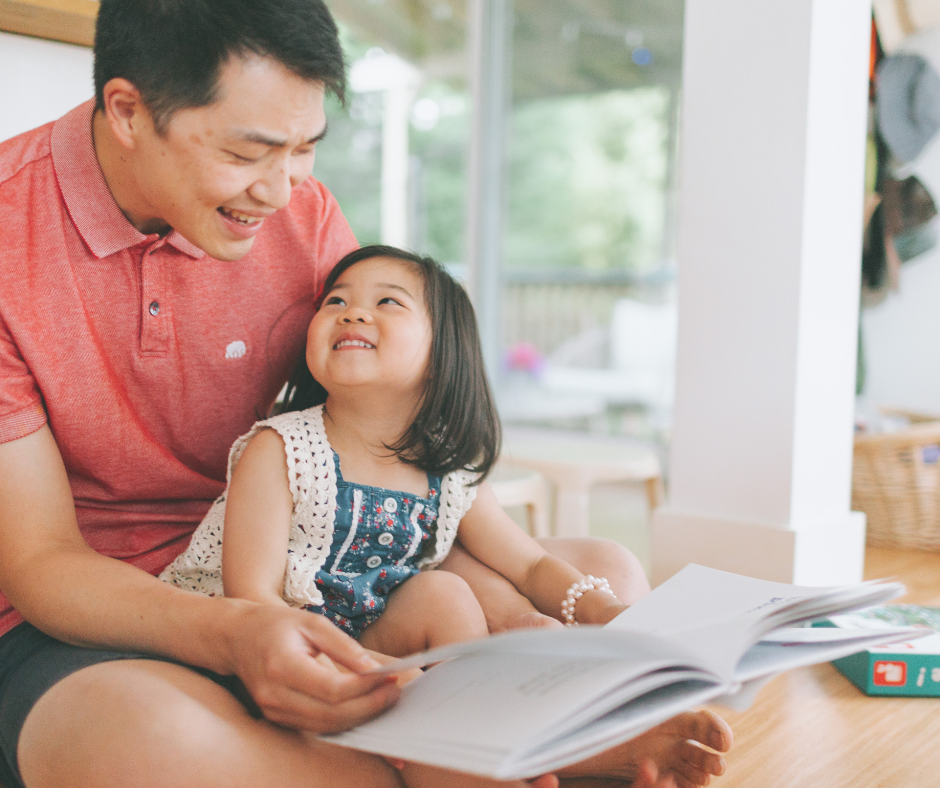There are many ways to show your partner, family or friend that you love them—whether it’s surprising your bestie with their favorite snack, waking up at 4 am to take your spouse to the airport or cuddling up to read your child “Goodnight Moon” for the 98th time.
Whatever your love language is, we hope and encourage you to include empathic listening when you’re communicating with your loved ones, specifically your kids.
Taking the time and energy to truly listen with empathy says to them, “You matter”. And that, is indeed a lovely thing.
Here is Dr. Gordon’s take on Active Listening with your kids, from his book, Parent Effectiveness Training:
Active Listening promotes a relationship of warmth between parent and child. The experience of being heard and understood by another person is so satisfying that it invariably makes the sender feel warm toward the listener. Children, particularly, respond with loving ideas and feelings. Similar feelings are evoked within the listener—he begins to feel warmer and closer to the sender.
When one listens empathically and accurately to another, he gets to understand that person, to appreciate his way of looking at the world—in a sense, he becomes that person during the period of putting himself in his shoes. Invariably, by allowing oneself to “get inside” the other person, one produces feelings of closeness, caring and love.
To empathize with another is to see him as a separate person, yet be willing to join with him or be with him. It means “becoming a companion” to him for a brief period in his journey through life. Such an act involves deep caring and love. Parents who learn empathic Active Listening discover a new kind of appreciation and respect, a deeper feeling of caring; in turn, the child responds to the parent with similar feelings.
Active Listening facilitates problem-solving by the child. We know that people do a better job of thinking a problem through and toward a solution when they can “talk it out” as opposed to merely thinking about it. Because Active Listening is so effective in facilitating talking, it helps a person in his search for solutions to his problems. Everybody had heard such expressions as “Let me use you as a sounding board” or “I’d like to kick this problem around with you” or “Maybe it would help me to talk it out with you.”
Active Listening influences the child to be more willing to listen to the parents’ thoughts and ideas. It is a universal experience that when someone will listen to one’s own point of view, it is then easier to listen to his. Children are more likely to open themselves up to receive their parents’ messages if their parents first hear them out. When parents complain that their kids don’t listen to them, it’s a good bet that the parents are not doing an effective job of listening to the kids.
Active Listening “keeps the ball with the child.” When parents respond to their kids’ problems by Active Listening, they will observe how often kids start thinking for themselves. A child will start to analyze his problem on his own, eventually arriving at some constructive solutions. Active Listening encourages the child to think for himself, to find his own diagnosis of his problem, to discover his own solutions. Active Listening conveys trust, while messages of advice, logic, instruction, and the like convey distrust by taking over the problem-solving responsibility from the child.
Active Listening is therefore one of the most effective ways of helping a child become more self-directing, self-responsible, and independent.
Attitudes Required to Use Active Listening
Active Listening is not a simple technique that parents pull out of their “tool kit” whenever their children have problems. It is a method for putting to work a set of basic attitudes. Without these attitudes, the method seldom will be effective; it will sound false, empty, mechanical, insincere.
Here are some basic attitudes that must be present when a parent is using Active Listening. Whenever these attitudes are not present, a parent cannot be an effective active listener.
1. You must want to hear what the child has to say. This means you are willing to take the time to listen. If you don’t have time, you need only say so.
2. You must genuinely want to be helpful to him with his particular problem at that time. If you don’t want to, wait until you do.
3. You must genuinely be able to accept his feelings, whatever they may be or however different they may be from your own feelings or from the feelings you think a child “should” feel. This attitude takes time to develop.
4. You must have a deep feeling of trust in the child’s capacity to handle his feelings, to work through them, and to find solutions to his problems. You’ll acquire this trust by watching your child solve his own problems.
5 . You must appreciate that feelings are transitory, not permanent. Feelings change—hate can turn into love, discouragement may quickly be replaced by hope. Consequently, you need not be afraid of feelings getting expressed; they will not become forever fixed inside the child. Active Listening will demonstrate this to you.
6 . You must be able to see your child as someone separate from you—a unique person no longer joined to you, a separate individual having been given by you his own life and his own identity. This “separateness” will enable you to “permit” the child to have his own feelings, his own way of perceiving things. Only by feeling “separateness” will you be able to be a helping agent for the child. You must be “with” him as he experiences his problems, but not joined to him.
Happy Valentine’s Day, with love and listening, from all of us at Gordon Training International

